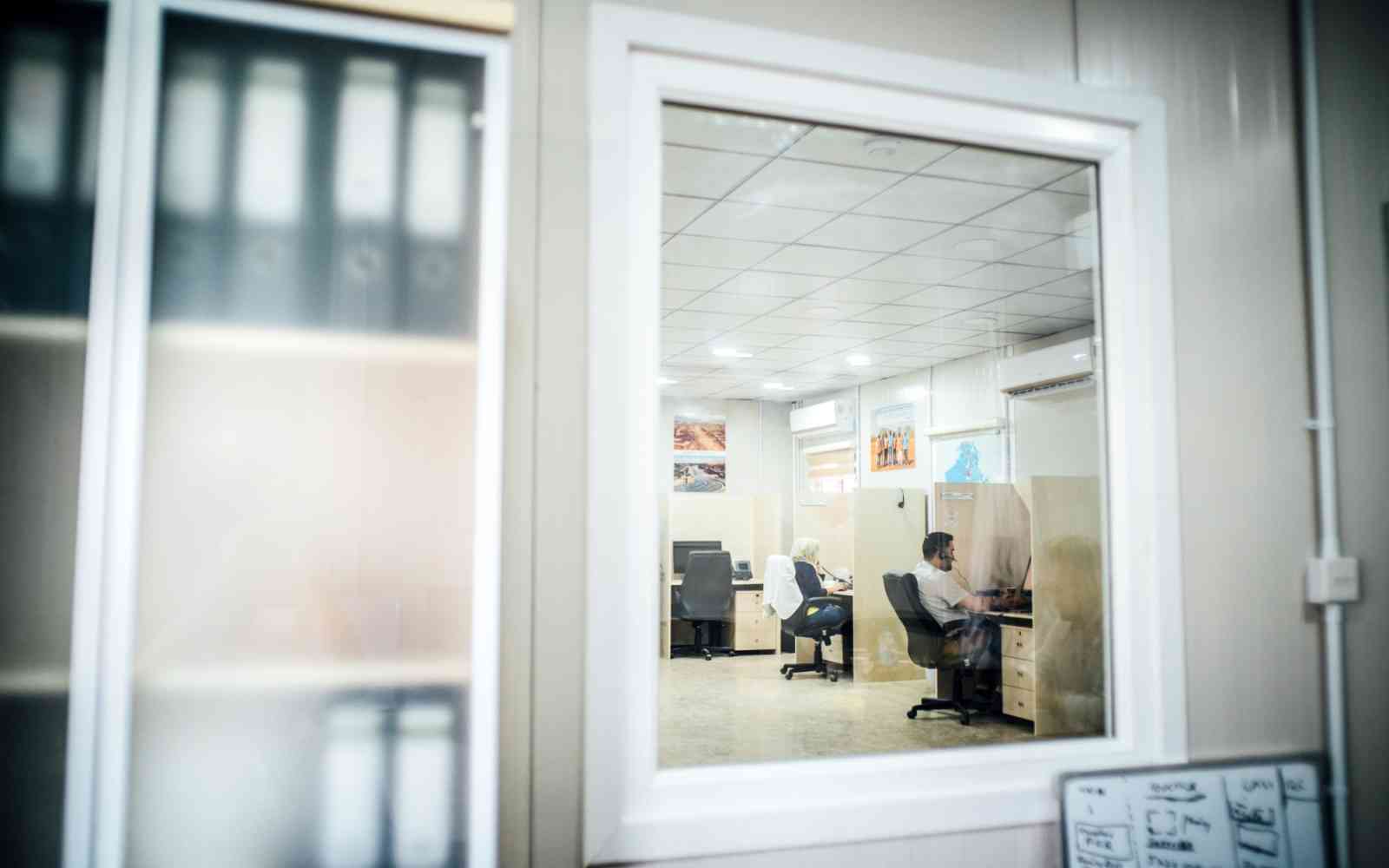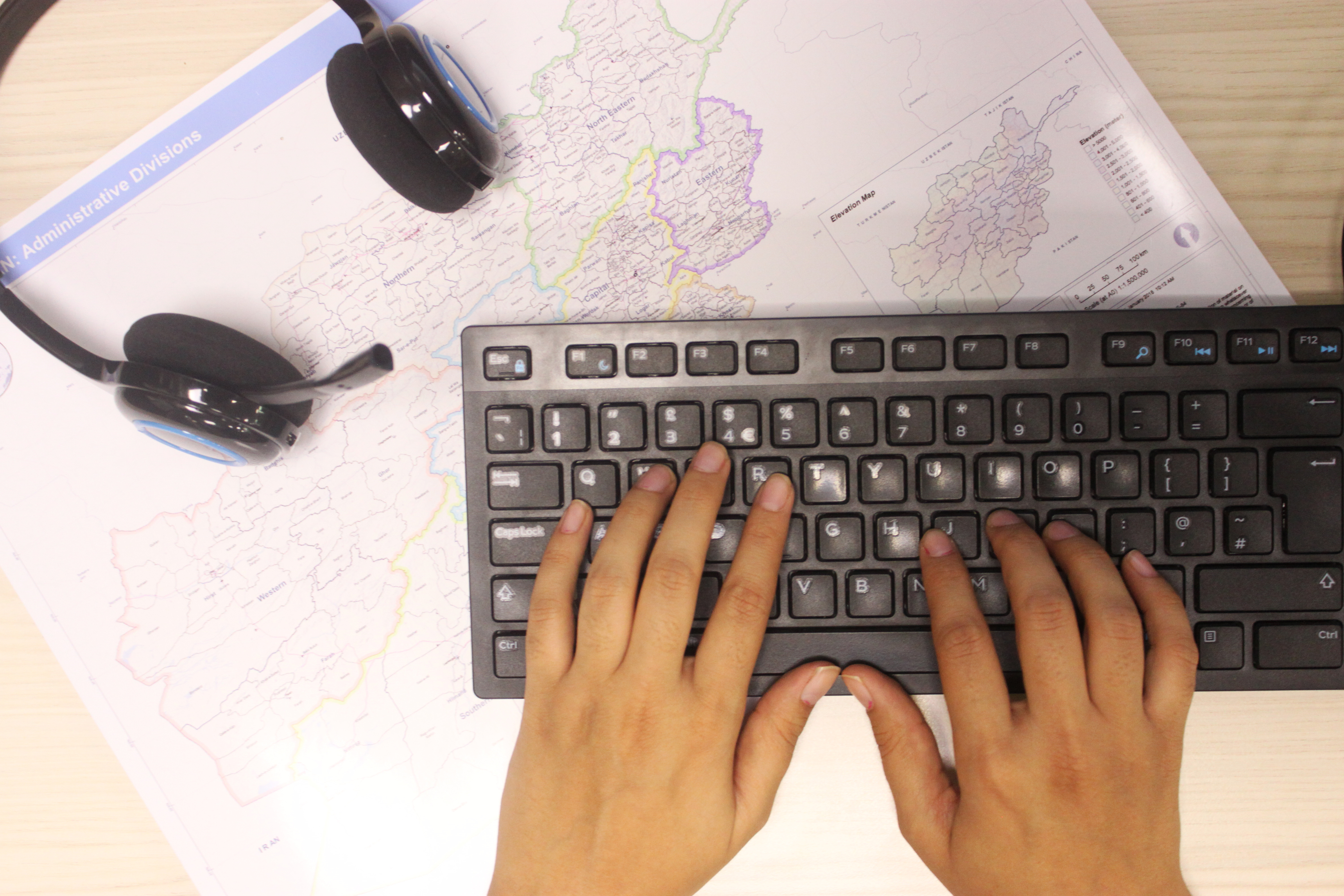The United Nations Office for Project Services (UNOPS)

Holding humanitarian service providers accountable
The word 'accountability' is widely used in the humanitarian community – here's why it matters and how to foster it.
In Iraq, decades of conflict have left 4.1 million people in need of humanitarian assistance. Afghanistan now has 9 million people estimated to be in humanitarian need.*
In both countries, humanitarian actors work to help and support the people who need it most. But these same humanitarian actors must also be held accountable to the people they seek to assist.
On behalf of local and international partners in Afghanistan and Iraq, UNOPS runs inter-agency information and accountability call centres. Awaaz Afghanistan** and the Iraq Information Centre*** provide life-saving information to those affected by conflict or natural disaster. People can call – free-of-charge – to seek advice on shelter and food, request legal or cash assistance, report misconduct, and seek out mental health and psychological support for trauma or ending abuse.
But these centres aren't only about providing information on assistance. Both centres play an active role in keeping humanitarian service providers accountable to the people they're meant to be helping.
And accountability is not just a vague concept. When taken seriously and implemented correctly, it's crucial for the humanitarian community to respond to local needs in the best way possible.
LISTEN. TAKE ACTION. GET FEEDBACK. REPEAT.
It sounds simple, but facilitating two-way communication isn't a one-size-fits-all approach. The best communication method varies depending on the context, geography and demographics, as well as the caller's needs, feedback or complaints.
In both Afghanistan and Iraq, communication channels have been carefully chosen so that they are in line with the preferences of affected communities to ensure continuous engagement.
In Afghanistan, in-person contacts with community leaders and aid organizations aren’t always feasible, particularly in hard-to-reach and conflict-affected areas. As such, the preferred method of communication is by telephone.
On the other hand, in Iraq, face-to-face outreach activities**** are regularly conducted in camps and in urban areas. However, the safest way people can receive information, as well as report issues or problems, is through the call line. This ensures that their personal information is protected.
Often, the issue a caller seeks to report is merely the tip of the iceberg. Information centre operators actively listening and asking the right questions can help uncover different, underlying problems – for example, a caller requesting health assistance can help uncover water quality issues in the caller’s village.
Information like this is shared with humanitarian aid organizations to help them improve the projects and programmes intended to meet people's needs.
And the information provided by these centres is vital for identifying needs and gaps in services. Documenting local protection issues and allegations of fraud help guide national and international humanitarian actors working together to ensure needs of affected people are being met nationally.
In Afghanistan, for example, a community member called Awaaz Afghanistan and said that food delivered to a local community didn’t reach the intended recipients: 54 families affected by a drought. The centre referred the case to the humanitarian organization responsible for the programme.
The organization then sent someone to the community to meet with the caller and investigate the issue. They found that a community elder had taken the food and sold it in a local market, pocketing the money. After consulting with the community, the organization agreed on a better way to distribute food assistance to avoid a similar issue in the future.
In Iraq, a man living in an internally displaced person camp who was eligible for cash assistance called the Iraq Information Centre to report that the company he used inside his camp to receive the money took a commission – which it wasn't allowed to do. Unable to leave the camp due to COVID-19 restrictions, he didn't have the option to find an alternative company.
The centre shared this information with the relevant organization. After investigating, they found that this was an issue not only in the caller's camp, but other camps as well. To prevent this from happening in the future, the organization changed the way cash assistance was paid out, shifting from using a private money transfer company to using a direct transfer method involving project partners.
These examples show that a single phone call can have a big impact on the way humanitarian actors respond – and affect an entire community.
*Figures for Afghanistan are as of June 2020 and figures for Iraq are as of April 2020.
**Funded by the Afghanistan Humanitarian Fund, the European Civil Protection and Humanitarian Aid Operations (ECHO), the UN High Commissioner for Refugees (UNHCR), and the World Food Programme (WFP).
*** Funded by ECHO, the Iraq Humanitarian Pooled Fund, the Office of the UN Iraq Resident and Humanitarian Coordinator, UNHCR, the UN Office for the Coordination of Humanitarian Affairs, the United States Agency for International Development, WFP and the World Health Organization.
****During the COVID-19 pandemic, UNOPS takes measures in line with World Health Organization guidelines to prevent the spread of the virus. When not able to engage in face-to-face activities in person, community engagement activities are conducted online. Social media is used to share awareness-raising information and to conduct polls in order to collect feedback.
Hannah Milde and Silvia Sánchez Ruiz
Hannah Milde is the Project Manager for Awaaz Afghanistan. She previously worked as an Associate Programme Officer with United Nations Mine Action Service and as an Information Management Officer with UNOPS in Kabul, Afghanistan. She also worked as a Transparency and Project Officer with UNOPS in Denmark.
Silvia Sánchez Ruiz is the Project Manager of the Iraq Information Centre. She previously worked as a delegate with the Red Cross in The Gambia, Senegal and Timor-Leste, and as a Programme Officer with UN Volunteers in Chad.













